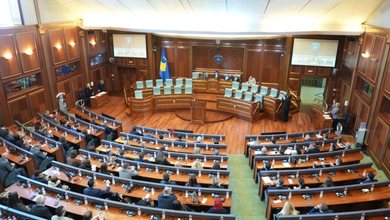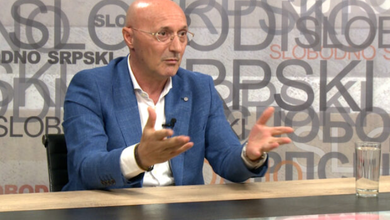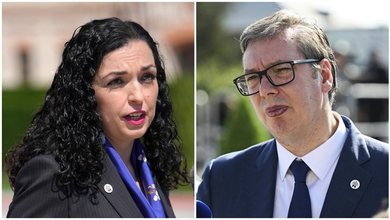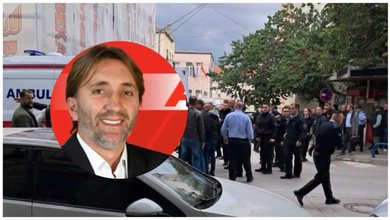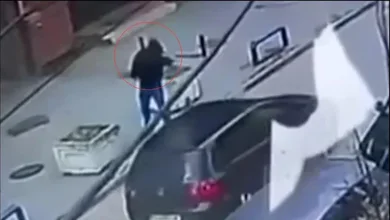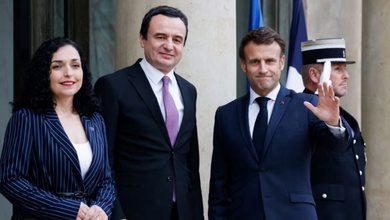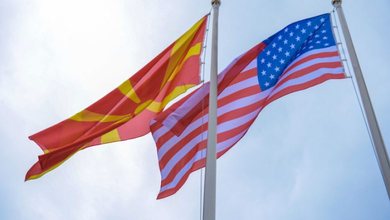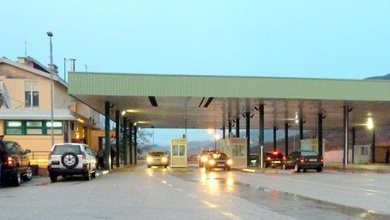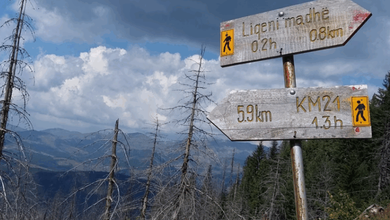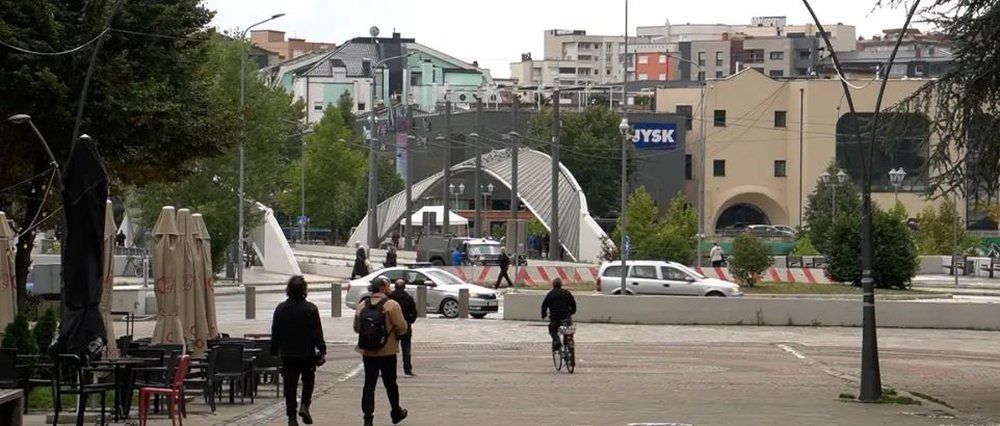
Near the Ibar Bridge in North Mitrovica, where over 90% of the population is ethnic Serb, the atmosphere has changed after three years with a non-Serb Kosovo mayor. Once, the walls of the northern municipalities were covered with graffiti of Serbian national symbols. Now, the walls have been painted over and the graffiti has disappeared.
Serbian flags are now rarely seen in North Mitrovica, Zubin Potok, Zvecan and Leposavic, although they once hung on almost every electric pole. Kosovo police are visible on every corner. Since the mass resignation of Kosovo Serbs from institutions in November 2022, Kurti’s government has purposefully implemented administrative measures: it has replaced the Serbian dinar in local institutions, closed over 60 Serb-run offices and increased police presence, promoting integration under Kosovo laws.
Milena Jevtic, a 23-year-old student from North Mitrovica, faces these changes every day. After three years of boycotting elections, Serb parties will take part in local elections on October 12. Milena will not vote, believing that no single party can bring real change, but she believes that the majority of Kosovo Serbs will. “Even if Serbs return to local leadership, I don’t see any real improvement,” she says.
Many Kosovo Serbs expect the Serbian List to win the upcoming local elections in the North. While predictions point to this outcome, Miodrag Marinković, executive director of the NGO CASA in North Mitrovica, says that regardless of party, “political representatives of the Serb community will most likely form the local government.”
“What will change is that the community will have a real democratic expression,” he adds. “Lista Srpska has not fully represented the interest of Serbs before, but now Pristina’s influence on local issues will be reduced and local self-government can function in the interest of the community.”
From an Albanian perspective, the elections mark a new reality for Serbian parties. Political analyst Nexhmedin Spahiu sees this as legitimizing the measures of Kurti's government.
"I do not believe that there will be any change; on the contrary, taking control of the north will be legitimized. Serbs will govern themselves, but this will not bring any results or further developments. The situation cannot return to the way it was before the Banjska incident," says Spahiu.
Flags and symbols as a cause of conflict
All the recent tensions have started with symbols. On license plates or passports, these small symbols have caused major clashes. Roadblocks, border crossings were closed and the Serbian president sent the army to the border. For Miodrag Marinković, the risk of tensions begins with changes of power.
“The first conflict I foresee will be over symbols, such as the placement of the Serbian flag on municipal buildings and the involvement of the police in that process.” He also adds: “From the beginning, the actions of the new local governments will encounter strong resistance from Pristina, supported by police forces, and the first steps of the local assemblies will be accompanied by tensions and clashes.”
On the other hand, Nexhmedin Spahiu thinks that local self-government can restore graffiti and everything that is part of municipal competences.
"They can bring them back again. Even if they are nationalist symbols, this is simply a matter of legal interpretation, and the law cannot be interpreted subjectively. We have similar situations in other parts of the country, so this may relativize the issue," says Spahiu.
DW contacted Kurti's government to ask about possible tensions following the post-election power changes, but did not receive a response. Representatives of the Serbian List were also contacted, but did not respond.
Representatives of Serbian opposition parties in Kosovo, such as Stefan Veljkovic of the Serbian Democratic Party, criticize all of Kurti’s decisions, but also the policies of the Serbian List. He says his party “will conduct a complete review of municipal institutions, especially those in senior positions (such as directors), and will annul all harmful decisions that negatively affect the local population.”
Elections in the eyes of citizens
Local elections in other parts of Kosovo are dominated by discussions about infrastructure, kindergartens, parks and, in Pristina, the traffic situation. For Albanian Selim Sherifi, expectations for the upcoming elections are low.
"There are many promises, but as always, most remain only on paper. Four years have passed and we see little change," says Sherifi.
Political decisions and ongoing tensions have caused a massive exodus of Serbs from the North. According to a report by the International Crisis Group (ICG), from 2015 to 2023, the Serb population in Kosovo fell from 145,000 to 100,000.
Milena Jevtic from North Mitrovica is also having difficulty finding work. But her plan is clear: to stay.
"I don't believe anything will change. Politics is as it is," says Jevtic./DW/


